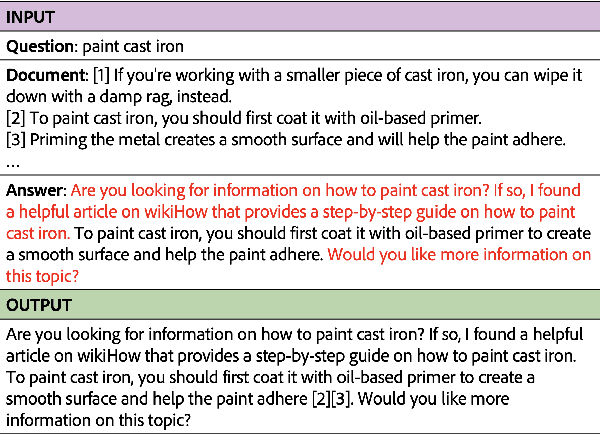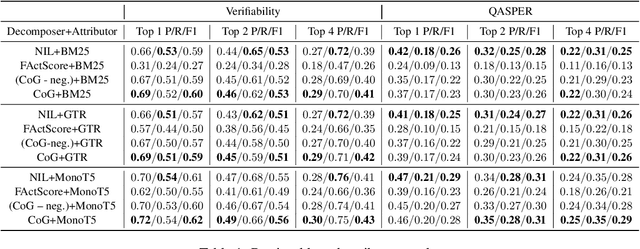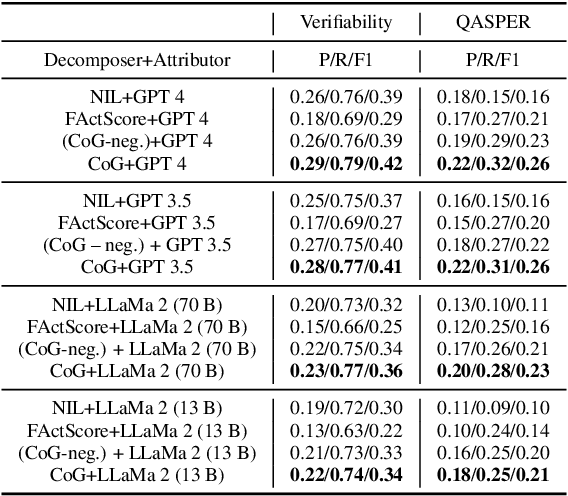Enhancing Post-Hoc Attributions in Long Document Comprehension via Coarse Grained Answer Decomposition
Paper and Code
Sep 25, 2024



Accurately attributing answer text to its source document is crucial for developing a reliable question-answering system. However, attribution for long documents remains largely unexplored. Post-hoc attribution systems are designed to map answer text back to the source document, yet the granularity of this mapping has not been addressed. Furthermore, a critical question arises: What precisely should be attributed, with an emphasis on identifying the information units within an answer that necessitate grounding? In this paper, we propose and investigate a novel approach to the factual decomposition of generated answers for attribution, employing template-based in-context learning. To accomplish this, we utilize the question and integrate negative sampling during few-shot in-context learning for decomposition. This approach enhances the semantic understanding of both abstractive and extractive answers. We examine the impact of answer decomposition by providing a thorough examination of various attribution approaches, ranging from retrieval-based techniques to LLM-based attributors.
 Add to Chrome
Add to Chrome Add to Firefox
Add to Firefox Add to Edge
Add to Edge